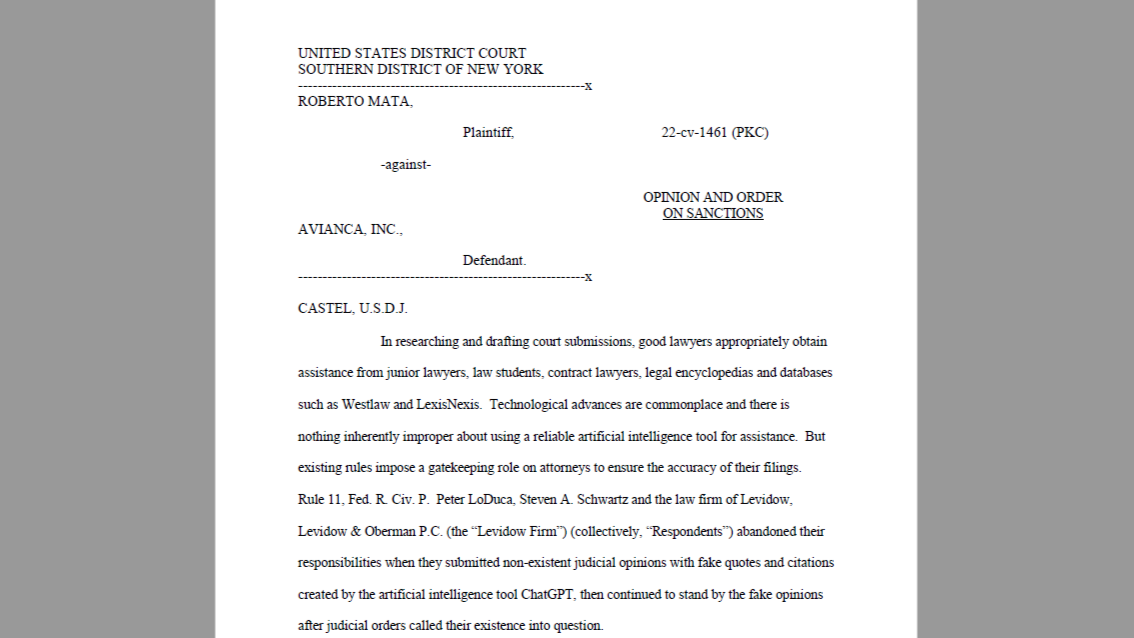A federal district judge has imposed monetary and other sanctions on the two lawyers who filed a brief laden with bogus cases they found when they relied on ChatGPT for legal research.
In the case of Mata v. Avianca, the judge ordered the lawyers, Peter LoDuca and Steven A. Schwartz, as well as the law firm of Levidow, Levidow & Oberman, to pay a penalty of $5,000.
He also ordered them to notify their client of the sanctions, and to notify each judge who was falsely identified as the author of the fake court opinions generated by ChatGPT.
While there is nothing “inherently improper” about an attorney using artificial intelligence, wrote U.S. District Judge P. Kevin Castel, “existing rules impose a gatekeeping role on attorneys to ensure the accuracy of their filings.”
In this case, he continued, the attorneys “abandoned their responsibilities when they submitted non-existent judicial opinions with fake quotes and citations created by the artificial intelligence tool ChatGPT, then continued to stand by the fake opinions after judicial orders called their existence into question.”
In harsh language, the judge wrote that the attorneys’ actions might not have warranted sanctions if they had come clean about their actions shortly after opposing counsel questioned the existence of the cases they cited, or after they had read the court’s subsequent orders requiring them to produce the questioned cases.
“Instead, the individual Respondents doubled down and did not begin to dribble out the truth until May 25, after the Court issued an Order to Show Cause why one of the individual Respondents ought not be sanctioned,” Judge Castel wrote.
“[T]he Court finds bad faith on the part of the individual Respondents based upon acts of conscious avoidance and false and misleading statements to the Court. Sanctions will therefore be imposed on the individual Respondents.”
Read the full opinion here: S.D.N.Y. 22-cv-01461 dckt 000054_000 filed 2023-06-22.
 Robert Ambrogi Blog
Robert Ambrogi Blog